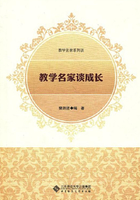of Prussia, Francis I. of Austria, the Grand Duke Francis Stephen of Tuscany, and by Philip Duke of Orleans, who accepted the office of grand master in France. Its members were recruited principally from the higher and middle classes, as the entrance fees and expenses made it impossible for anybody except the comparatively wealthy to become members. At the time when the society was formed it was the nobility and middle classes who formed public opinion in most countries, and it was thought that if these classes could be won over to support the principles of Freemasonry, they in turn could influence the mass of the people.
Freemasonry was established at a time when Deism and Naturalism were rampant in England, and it secured a foothold in most of the continental countries in an age noted for its hostility to supernatural religion. In the first article of the /Old Charges/(1723) it is laid down that, "A mason is obliged by his tenure to obey the moral law, and if he really understands the art he will never be a stupid atheist or an irreligious libertine." The precise meaning of this injunction has been the subject of many controversies, but it is clear from the continuation of the same article that the universal religion on which all men are agreed, that is to say, a kind of natural Christianity, was to be the religion of Freemasonry. The society professed to be non-sectarian in its objects, but the whole tendency of the rules and of the organisation in its practical working has been to promote contempt for dogmatic orthodoxy and for religious authority, and to foster a kind of modified Christianity from which specifically Catholic doctrines have been eliminated.
In France and in Austria Freemasons and Rationalists worked hand in hand for the overthrow of the established Church and for the spread of atheistical views. The society professed also to forbid political discussions, but here too the articles of the constitution are intentionally vague, and it is fairly evident that in most of the revolutions that have disturbed the peace of Europe during the last hundred years Freemasons have exercised a very powerful influence. For many reasons the anti-religious and revolutionary tendencies of Freemasonry have been more striking in the Latin countries, France, Spain, Portugal, and Italy, than in England or Germany. In 1877 the Grand Orient of France abolished the portions of the constitution that seemed to admit the existence of God and the immortality of the soul, and remodelled the ritual so as to exclude all references to religious dogma. This action led to a rupture between the Grand Orient and the lodges of England, Germany, and America. Yet many of the Freemasons in these latter countries sympathised with the attitude of their French brethren, and insisted on interpreting after their own fashion the very ambiguous formula by which the existence of a grand architect is recognised. There can be no doubt that even in England a man may be a Freemason accepting loyally all its articles, and yet refuse to believe in the existence of a personal God distinct from the world.
Freemasonry aims at establishing a spirit of comradeship and brotherhood among its members. They are bound to aid one another in every possible way and practically in all conceivable circumstances.
However objectionable such a practice, and however dangerous to the public weal and to the interests of the state it may be, it is precisely this feature of the society that won for it its greatest number of adherents.
Freemasonry was condemned by Clement XII. in 1738. In the constitution /In eminenti/, in which this condemnation was promulgated, he explained the reasons that induced him to take this step. These were the anti-religious tendencies of the society both in its theory and practice, the oaths of secrecy and obedience to unknown superiors, and the danger to Church and State involved in such secret combinations.
This condemnation has been renewed by several of his successors, as for example Benedict XIV. (1751), Pius VII. (1821), Gregory XVI.
(1832), Pius IX. (1865), and Leo XIII. (1884). Since 1738 Catholics have been forbidden under penalty of excommunication to become members of the society or to promote its success. According to the constitution /Apostolicae Sedis/ (1869), which is in force at the present time, excommunication is levelled against those who join the Freemasons or similar bodies that plot against the Church and established authority, as well as against those who favour such organisations and do not denounce their leaders.
(d) The Suppression of the Society of Jesus.
Cretineau-Joly, /Clement XIV. et les Jesuites/, 1847. De Ravignan, /Clement XIII. et Clement XIV./, 1856. Theiner, /Histoire du pontificat de Clement XIV. d'apres des documents inedits des arch.
secr. du Vatican/, 2 vols., 1852. Weld, /The Suppression of the Society of Jesus in the Portuguese Dominions/, 1877. Rosseau, /Regne de Charles III. d'Espagne/, 1907. Riffel, /Die Aufhebung des Jesuitenordens/, 3 auf., 1855. Foley, /Records of the English Province of the Society of Jesus/, 1877. Hogan, /Hibernia Ignatiana/, 1880. Taunton, /The Jesuits in England/, 1901.
From its foundation by St. Ignatius of Loyola and its approval by Paul III. the Society of Jesus had remained true to the teaching and spirit of its holy founder and loyal to the Holy See. In the defence of the Church, especially in Germany, Austria, Poland, Hungary, and France, in the domain of education and of literature, in the work of spreading Christianity amongst the races and peoples in India, China, Japan, and America, the Jesuit Fathers took the foremost place. They laboured incessantly to stay the inroads of heresy, to instil Catholic principles into the minds of the rising generation, and to win new recruits to take the place of those who had gone over to the enemy.














